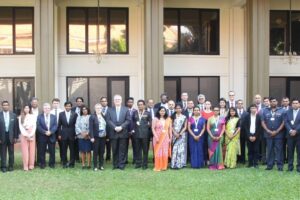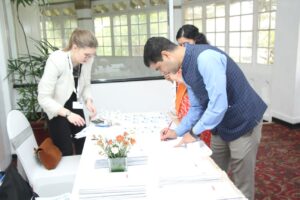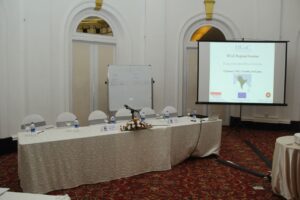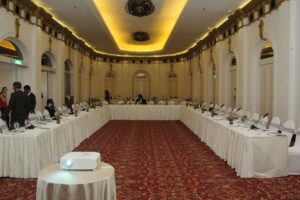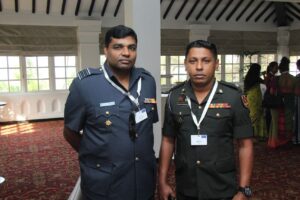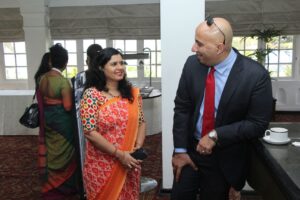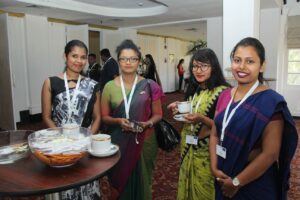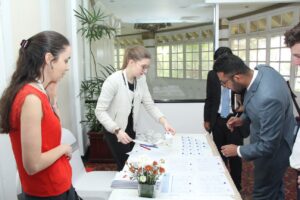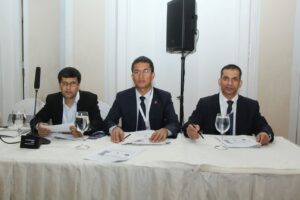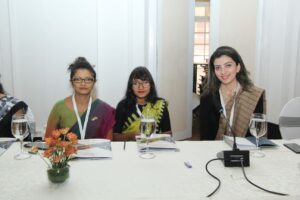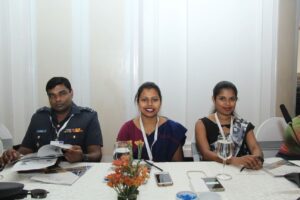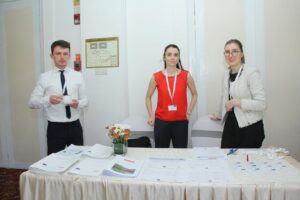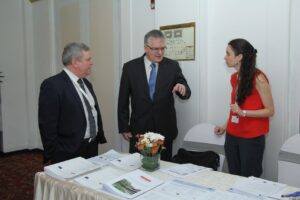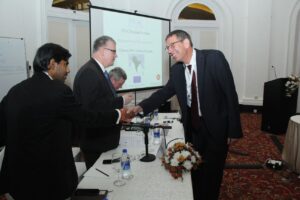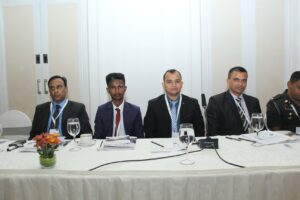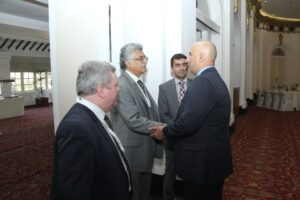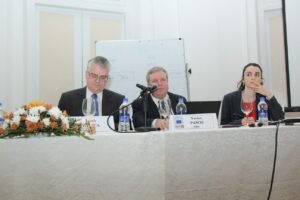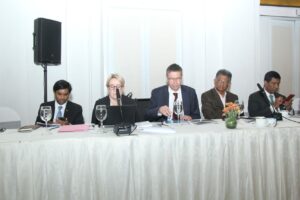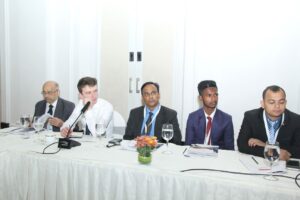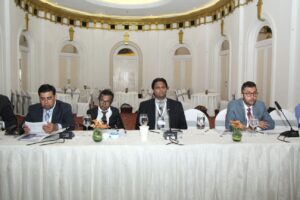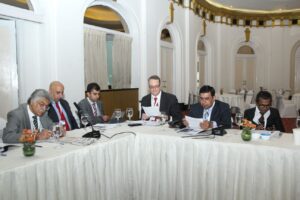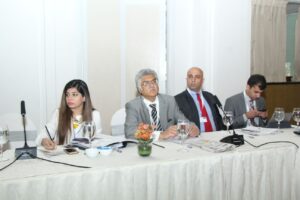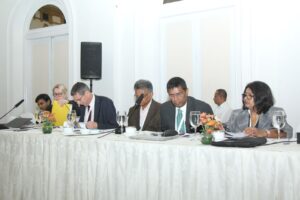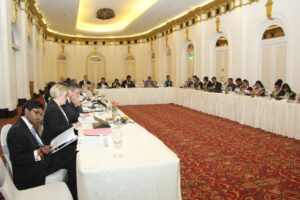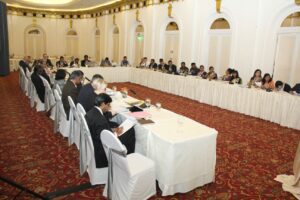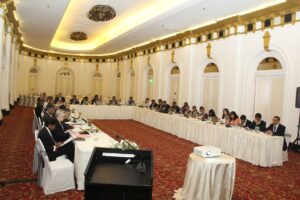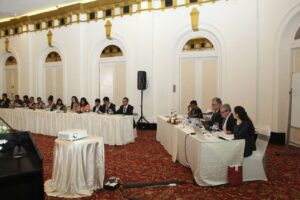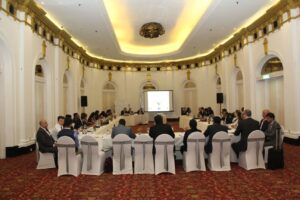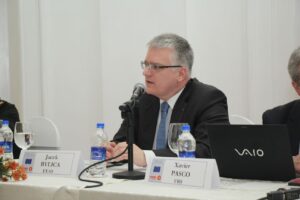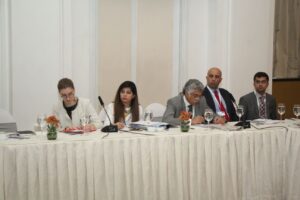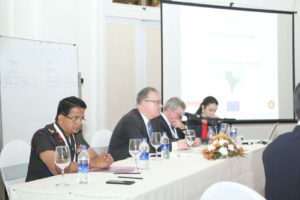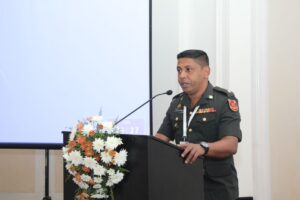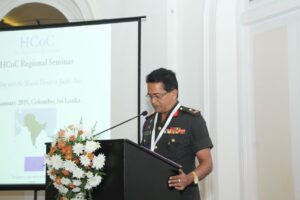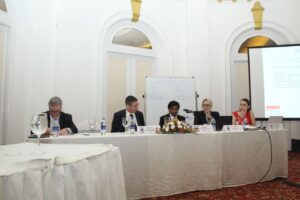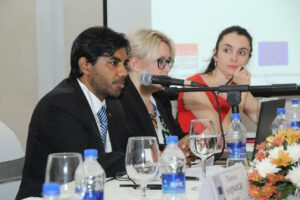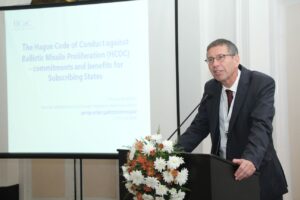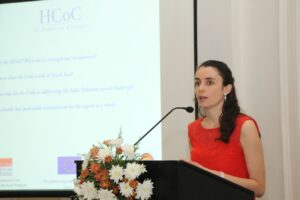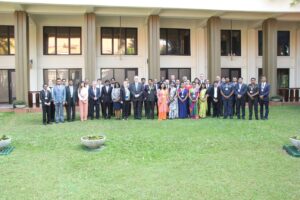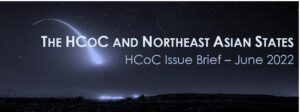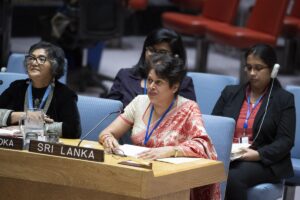South Asia Regional Seminar on HCoC in Sri Lanka
15 January 2019
On 15 January 2019, the FRS organised a regional outreach seminar in Colombo entitled « Dealing with the Missile Threat in South Asia ».
AGENDA
WELCOMING REMARKS
- Dr Xavier PASCO, Director, FRS
- Amb. Jacek BYLICA, Special Envoy for Disarmament and Non-proliferation, European External Action Service, Brussels
- Maj. General D.A.R. RANAWAKA, Military liaison Officer, Ministry of Defence Sri Lanka
I/ THE HCoC: A KEY INSTRUMENT TO PROMOTE CONFIDENCE IN THE FIELD OF WMD DELIVERY VEHICLES
MODERATOR:
- Asanga ABEYGOONESEKARA, Director, INSSSL
PRESENTERS:
- Amb. Ann-Sofie NILSSON, Ambassador for Disarmament and Non-proliferation, MFA, Sweden, HCoC Chair
- Amb. Thomas HAJNOCZI, Director for Disarmament, Arms Control and Non-Proliferation, MFA, Austria
- Emmanuelle MAITRE, Research Fellow, FRS
KEY ISSUES:
- Contribution of the Code to international security
- Being a Subscribing State: commitments and benefits
- Participating in international security: feedback from a Subscribing State
- Day-to-day implementation of the Code
II/ DRIVERS & IMPACTS OF MISSILE DEVELOPMENT IN SOUTH ASIA
MODERATOR:
- Dr. Xavier PASCO, Director, FRS
PRESENTERS:
- Amb. Zamir AKRAM, Former Permanent Representative in Geneva, MFA, Pakistan
- Ajey LELE, Senior Fellow, Institute for Defence Studies and Analyses
- Sitara NOOR, Director, STRATPOL Consultancy
KEY ISSUES:
- Drivers of the development of missile arsenals in South Asia
- Missile proliferation and security issues for the region
- Challenges and relevance of the Code for South Asian States
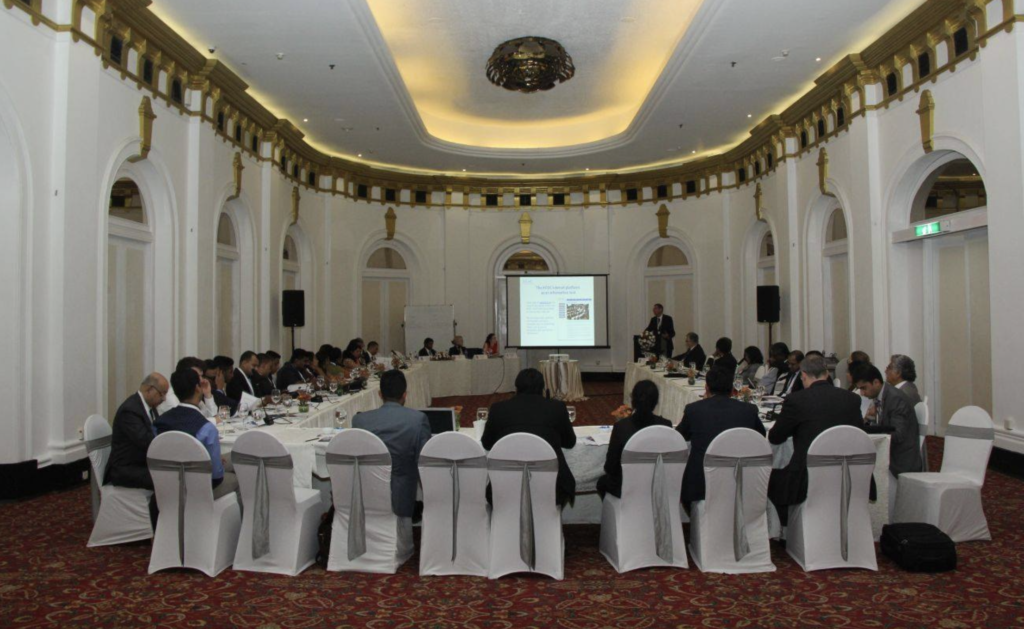
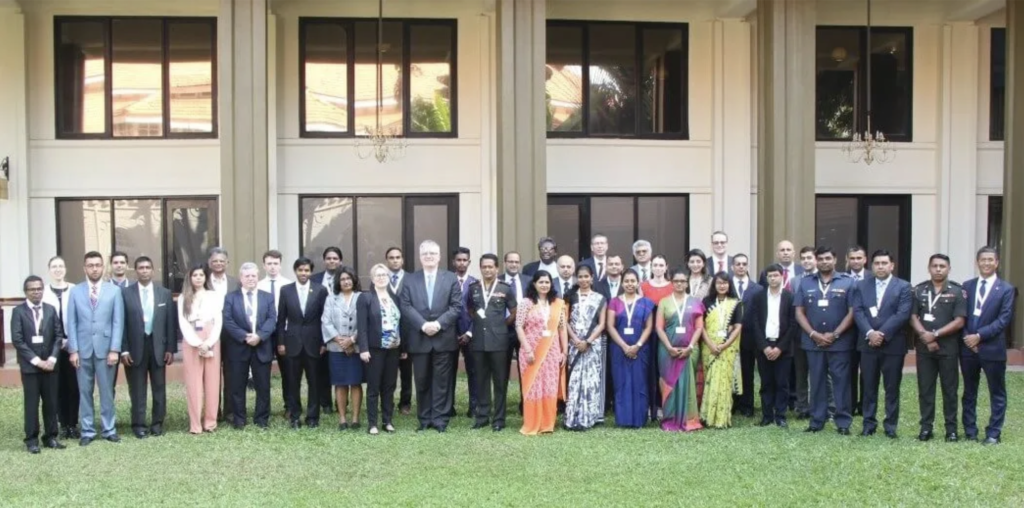
III/ CBMs & NON-PROLIFERATION: WHAT RELEVANCE IN THE SOUTH ASIAN CONTEXT?
MODERATOR:
- Emmanuelle MAITRE, Research Fellow, FRS
PRESENTERS:
- Malinda MEEGODA, Research Associate, Lakshman Kadirgamar Institute
- Aleksander MICIC, Deputy to the Director, UN Regional Centre for Peace and Disarmament in Asia and the Pacific (UNRCPD)
- Sam RAJIV, Research Associate, Institute for Defence Studies and Analyses
KEY ISSUES:
- Non-proliferation and disarmament: perspectives and priorities from South Asia
- Missile proliferation dynamics and role of CBMs
- Relevance of CBMs in the South Asian context
IV/ CBMs AS A TOOL TO PROMOTE SPACE DEVELOPMENT IN SOUTH ASIA
MODERATOR:
- Asra HASSAN, Advisor, Muslim Youth University
PRESENTERS:
- Dr. Xavier PASCO, Director, FRS
- Dr. Bharath GOPALASWAMY, Director, South Asia Center, Atlantic Council
- Dr. Rajeswari Pillai RAJAGOPALAN, Distinguished Fellow & Head, Nuclear & Space Policy Initiative, Observer Research Foundation
KEY ISSUES:
- Convergences and divergences between civilian and military technologies: the case of launchers
- Promoting transparency in space development: the potential growth of the space sector in South Asia and the impact of the Code
CONCLUDING REMARKS
- Dr. Xavier PASCO, Director, FRS
- Jacek BYLICA, Special Envoy for Disarmament and Non-proliferation, European External Action Service, Brussels
- Asanga ABEYGOONESEKARA, Director, INSSSL
